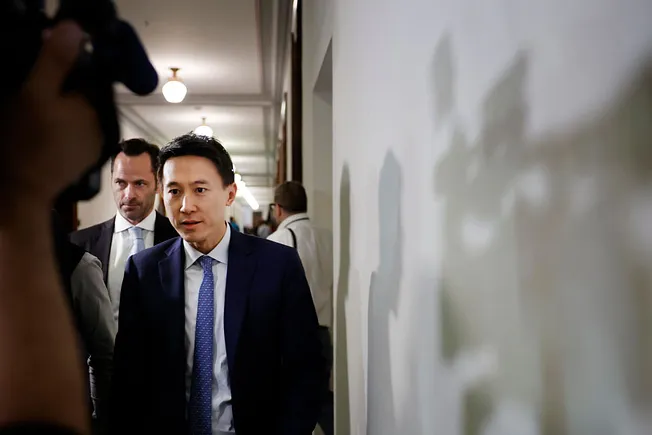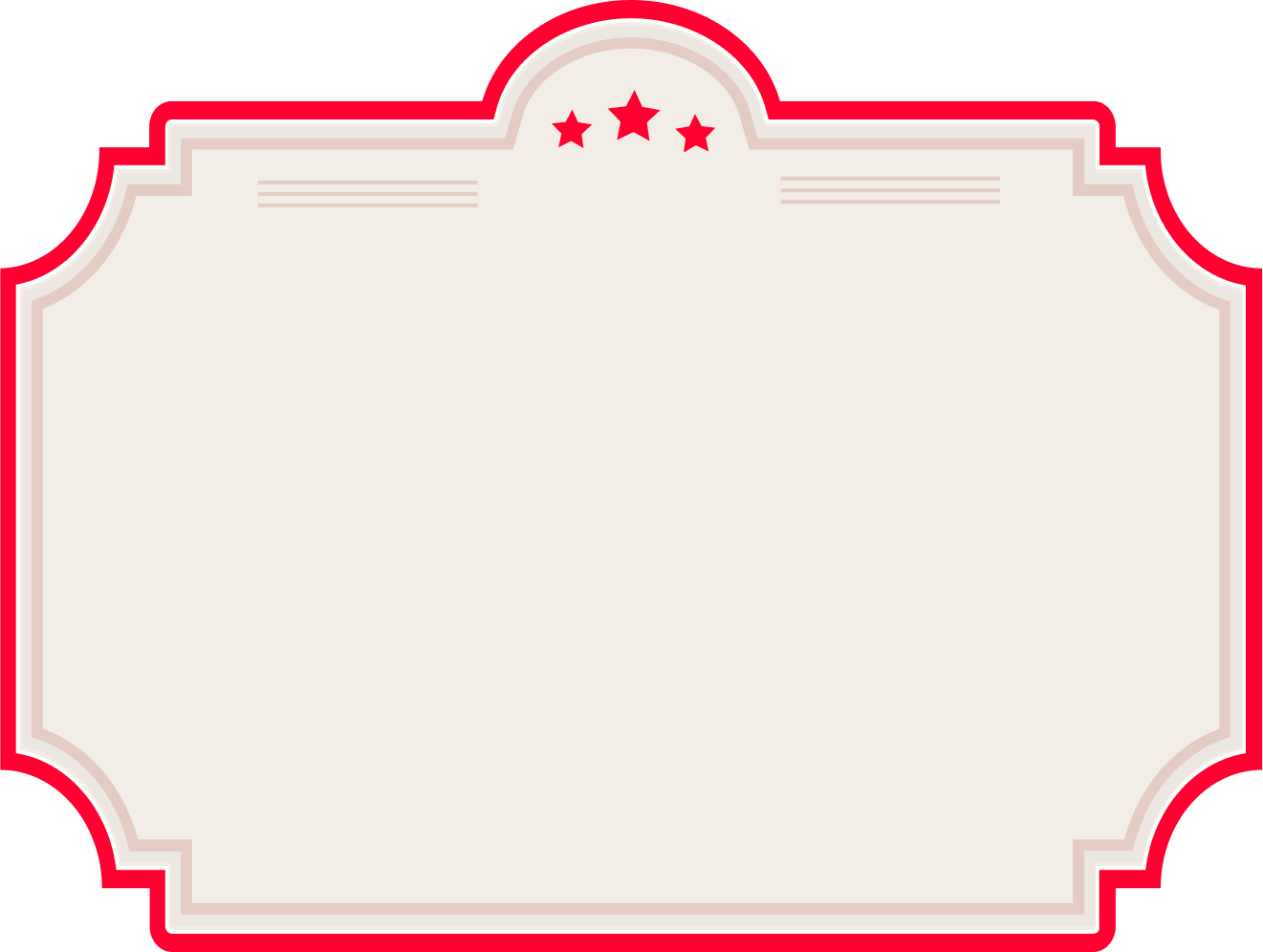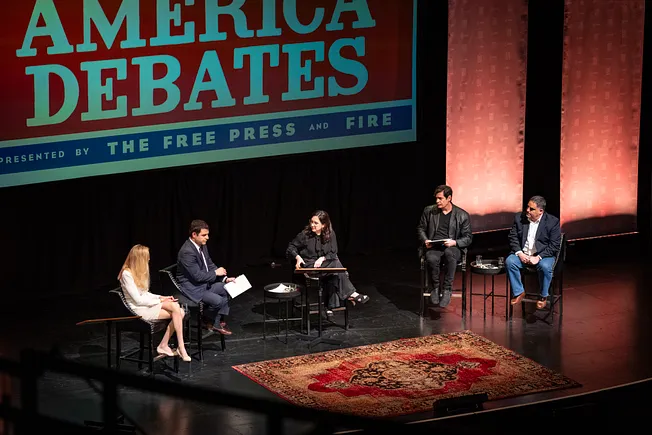What, if anything, should we do about TikTok? Is the forced sale of the fastest-growing social media platform in the world a commonsense step to protect America from the influence of the Chinese Communist Party? Or is legislation that would mandate the app’s sale or ban a threat to free speech?
That’s the passionate debate we’re having at The Free Press right now.
Not least because we respect people on both sides of the issue. Congressman Mike Gallagher, the lawmaker behind the bill that passed the House overwhelmingly last week and is on its way to the Senate, has written persuasively for us about the way in which TikTok has poisoned our politics. On the other side, Matt Taibbi—someone we always listen to when it comes to all things First Amendment—warns the legislation risks becoming a second Patriot Act, which gave the government sweeping new powers well beyond its stated purpose of catching terrorists after 9/11.
To help us—and you—think through this important issue, we invited two more people we respect, and who disagree about the TikTok bill, to thrash it out in a debate hosted by Michael Moynihan.
Geoffrey Cain is the author of The Perfect Police State and senior fellow at the National Security Institute of George Mason University. He says the TikTok bill is a logical extension of our current laws—and a necessary countermeasure to authoritarian meddling.
Walter Kirn is a novelist, Free Press contributor, editor-at-large of County Highway, and co-host of the podcast America This Week. He argues the bill is a dangerous overreach justified by flimsy evidence of an alleged threat.
You can watch their conversation here and find an edited transcript of the conversation below.
On the danger of Chinese influence in American politics:
Geoffrey Cain: Historically, America has always had controls over ownership by foreign adversaries. We’re just updating these measures for the social media age.
Look at the Founding Fathers, like Alexander Hamilton and James Madison. They were deeply worried about foreign interference in our political process. Move forward to the Radio Act a century ago, and the Communications Act of 1934. There are all kinds of laws in place restricting foreign ownership of communication networks, media, and infrastructure. Even Rupert Murdoch had to become a U.S. citizen in the 1980s to purchase American news media.
It’s not an affront to our civil liberties or the First Amendment to simply place a cap on what foreign adversaries can do in America. We are a free and open market, but authoritarian foreign adversaries like Xi Jinping aim to meddle in our democracy. They want ownership over communications networks that are extremely influential.
Walter Kirn: Geoff asserted a threat but gave no evidence. That’s common in this debate. You criticize China and suggest a specific threat, but we never hear about what it is. Only that it’s a deep, dark bogeyman. And for that, we should surrender our ability to speak.
You mention Rupert Murdoch, but let’s remember Section 230, which offers online platforms protection from liability for their users’ content. These platforms aren’t publishers, they’re websites covered by this bill. It’s not limited to TikTok. The bill extends to an infinity of websites, applications, potentially influenced by foreign adversaries.
There’s been an almost unbroken trend of framing foreign threats as quasi-domestic ones. A recent New York Times story highlighted how laws meant to combat foreign misinformation have “evolved” to target domestic content somehow influenced by them. In the text of this bill, the president can unilaterally ban or demand divestiture of platforms deemed to be directed by a foreign entity, often an individual. It’s a huge, scattershot attempt to solve a problem which hasn’t even been clearly defined.
What exactly is this alleged algorithmic mind control or brainwashing? No one can tell me. Is it the dance videos? Pro-Palestinian sentiment? What exactly? American creators produce this content en masse—and their speech is being restricted en masse.
On tolerating foreign propaganda in a liberal democracy:
GC: TikTok has been sending lobbyists into congressional offices, parroting Chinese Communist Party talking points. Michael Beckerman, TikTok’s top lobbyist, has been widely reported to echo these sentiments, even going as far as labeling Uyghurs as terrorists and advocating for censorship.
WK: That’s not censorship; that’s propaganda. That’s not censorship, it’s the perspective of the Chinese Communist Party, which is pushing its line much as we push our line globally.
America is in a sad state. It can’t compete, so it resorts to expropriating from those who can. It’s a lot like nationalizing a railroad in a smaller country. The fact is that TikTok has not injected any single issue into the American conversation that could not have been there by other means. I challenge you to identify any issue or viewpoint TikTok is responsible for that wouldn’t exist otherwise.
GC: TikTok has been a bad-faith actor. They’ve been lying, they’ve been obstructing. They’re not being honest about what’s been happening in China and the fact that their parent company has been involved in serious human rights abuses in China. They’ve been spreading propaganda. We can’t have that in a democracy.
WK: Oh yes, we can. In fact, we need that. In fact, the competition between different sorts of propaganda is exactly what Americans, with their free speech rights and their free press rights, are allowed to scrutinize and need to scrutinize.
Michael Moynihan: Geoff, would you support banning RT, which is a broadcaster and news website controlled by the Russian government, or Press TV, which is controlled by the Iranian government, two major abusers of human rights? Those are available to anybody that has cable access or an internet connection. Is this bill, as Walter suggests, something that is due mostly to TikTok’s phenomenal success?
GC: I don’t think we should boot RT completely. I think that there should be restrictions on ownership. If RT is opening a subsidiary in America, it should not have full ownership by the Russian government, which is controlled by one of the world’s biggest thugs, who might start World War III. That’s becoming a real possibility. I wouldn’t support Xi Jinping or one of his cronies or Putin or one of his cronies having some kind of ownership over CNN or MSNBC or Fox News.
Yeah, the press in America does have our problems. There have been challenges in our democracy, but that doesn’t change the point that these are totalitarian, authoritarian regimes that exist on a different level from what exists in America.
On whether TikTok is a publisher or a platform:
WK: TikTok is not the press. That is the very essence of this. It is not a publisher. If you know about Section 230, you know that you’re comparing apples to oranges. TikTok is not a cable news channel. The content on TikTok is not produced by the Chinese government. It’s produced by American young people.
GC: But it’s a major communications network. We regulate this for TV, for radio. There’s a lot that we can do with Section 230 that would be separate from the TikTok bill, but this is comparable to a major outlet in which most people get all of their news. It fulfills that role. There have been calls to change Section 230. One proposal is to make it so that companies that use algorithms as the main source of sending out their news will lose their protections.
WK: That’s all of them! If we’re going to demonize algorithms, we’ve just thrown out the entire model for the distribution of internet information, including on Google. Google uses algorithms. What are you talking about?
GC: What I’m talking about is the fact that communication networks cannot be controlled by foreign adversaries. I think that you’re splitting hairs by trying to make it look like a social media network like TikTok does not fulfill a similar role to CNN in our society today.
On the use of national security threats as a pretext to restrict civil liberties:
WK: There are two components to this legislation. One refers specifically to TikTok. But the second part, Section B, refers to “a website, desktop application, mobile application, or augmented or immersive technology application” which could be controlled or directed by a foreign adversary.
Over the past few years, everyone from the president of the United States to my podcast partner, Matt Taibbi, to people tweeting inconvenient opinions about Covid have been portrayed as being somehow directed or influenced by foreign adversaries.
We’re being assured that nothing bad will happen. It’s just this one instance, this emergency. However, if we look at history, we’ll see that this exact sort of legislation and legal precedence have consistently been bent beyond recognition. In fact, we could postulate that they exist in order to be broadened. And this one is ripe for broadening as it stands right now. It could be applied in so many ways. But of course, we’re assured it won’t be.
Because TikTok is the social media “missile gap” between us and China, just as there was a missile gap between us and Russia once, we must catch up, we must stop them. I am tired of these so-called emergencies because despite the discussions we’ve had, no one has persuaded me that anything existentially threatening is actually happening.
On censorship double standards:
WK: What distinguishes us from North Korea, which prohibits foreign influence that may corrupt its society? How far are we willing to erect this dome over the United States, in which our propaganda is allowed to run free while theirs is restricted? Is that how scared, insecure, threatened, and weak we are?
GC: Walter, I think you’ve got it backwards. Their propaganda runs rampant all over the world, while ours is blocked. Our apps are inaccessible in China. You can’t use Google, Facebook, or Snapchat there.
This narrative has been peddled to us by our elites over the past three decades in the age of globalization. The notion was that we could venture into China, Russia, Iran, invest, and proliferate our technologies and capitalist ideals. The belief was that these governments would realize that the liberal, globalist dream is great for them. The people will rise up and create a new liberal government that will resemble America’s. Our elites endorsed this idea because they profited from it. They saw China and other nations as lucrative markets.
What has unfolded is the reverse. These nations have become more authoritarian. China’s transformation is a travesty. You can’t move around there without being spied on, watched, or harassed. It’s become increasingly totalitarian over the past decade. Meanwhile, we’ve opened our markets to everybody. Anyone with money and investment prospects can come here, purchase land, even military bases, as you mentioned. They can set up a giant social media network. We’re open for business, but they’re not. And therein lies our vulnerability. We’ve absorbed all their products, yet we’re unable to exert influence in their direction.
On history repeating itself:
WK: I’m willing to stipulate that China is awful. I’m willing to stipulate that we’re better and that we have protections for behaviors that they don’t have protections against. But I am not willing to concede that the threat of TikTok, out of all the technologies and instruments of influence that they wield, poses such a unique threat that we need to use it as the pretext for a broad law which will allow the president of the United States, potentially based on vague assertions from intelligence agencies, to start banning websites and apps at his own discretion.
I’m no fan of China. I’m a fan of the United States. I agree that we’re in a global competition that we must win. But by degrading our culture and constitutional system and by embracing a restrictive information regime, we lose the fight in another fashion. We lose without fighting because we’re becoming our enemy. It’s like a Bob Dylan song. You don’t want to become the monster by fighting the monster. I have confidence that the United States isn’t succumbing to Chinese propaganda or espionage to such a degree that poses an existential threat.
No one has presented compelling evidence for this. Sure, there may be shenanigans. Sure, there may be more people supporting the Palestinian cause than there would be otherwise if TikTok had not existed. But the threat is negligible. On the other hand, the threat posed by bills like this one is clear as day. Our rights have been steadily eroded. Just a year ago, there was an attempt to pass the RESTRICT Act, which was essentially a censorship bill, and now we’re seeing a similar effort resurface.
Anybody who criticizes things in America on Twitter is tarred to be Putin’s puppet. We can’t go on like that. We can’t go into a new Red Scare. I am a writer and a novelist. This is reminiscent of the early 1950s panic, the idea that the Chinese have a secret sauce to infiltrate American minds, especially those of kids. The TikTok debate often revolves around concerns about the porous nature of American youth.
Somewhere out there is this zombie-like population being manipulated that needs protection from itself. That we’re falling for this again is indicative of some sort of generational amnesia.
On whether TikTok is brainwashing young Americans:
GC: Critics of this bill get hung up on the data aspect. They’re saying: it’s videos of my cat. It’s videos of Keanu Reeves dancing to techno music. That’s low-quality data. The data is not the concern here.
It’s the algorithmic power. President Xi Jinping himself says that this AI is core to national power, while he’s threatening Taiwan, the Philippines, and American allies with invasion. War is likely within the next decade. It’s not America that’s the guilty party. It’s what the Chinese Communist Party has done to its people. The fact that this company is run by people who have publicly said that they want to use TikTok to impose their “socialist core values.”
That’s the threat. It’s the algorithmic power—the potential to use a service that millions of Americans are using as their sole source of news, in the event of a war, to really infiltrate and to mess with our democracy.
WK: The Chinese government does not produce the content on TikTok. The algorithm you’re talking about is the thing that makes it addictive or sticky, the thing that keeps people swiping and watching. That algorithm, by some alchemy that no one has yet described to me, is advancing Chinese interests. How? By preferring certain kinds of American content over others?
I would advance this notion: when the East Palestine train derailment happened, a lot of the reporting that people saw came from TikTok. TikTok is used in America for all sorts of citizen journalism, a lot of which is not convenient for any regime. It shows things like toxic spills that aren’t widely reported on otherwise.
This algorithm does only one thing: give people what they’re interested in and addict them to the app. It does not somehow advance communist propaganda or secretly insert dialectical materialism into the minds of the youth. That is another bogeyman.
GC: Under their laws, the CCP sees this as part of their national objective to overtake American power. They don’t just see a funny cat video app. They see a peg in American society that they can use. This is their philosophy. It’s something Mao Zedong talked about: the importance of controlling the propaganda of spreading the revolution. It’s something the government talks about today: ensuring that Chinese tech companies have supremacy around the world for military purposes.
To support more vital conversation, become a Free Press subscriber today:










